Robert STEUCKERS:
Aux sources de l’idéologie sioniste
Extrait d’une conférence sur le Proche Orient, prononcée à la tribune du “Cercle Proudhon” à Genève, avril 2010
Le sionisme suscite l’enthousiasme dans une bonne part de la communauté juive, tous pays confondus, chez les “chrétiens sionistes” américains, qui sont des fondamentalistes protestants, et chez les occidentalistes et les atlantistes de toutes obédiences (de gauche comme de droite). En revanche, pour beaucoup d’autres, et a fortiori dans les pays arabes et les communautés arabo-musulmanes immigrées dans les pays occidentaux, le sionisme est considérée comme une forme de racisme juif dont les victimes sont les Arabes de Palestine. Une vive passion s’est emparée de toutes les discussions relatives à cette question, tant et si bien que les parties prenantes de ce débat ont une vision généralement propagandiste et militante sur le fait sioniste, oublieuse, comme toutes les autres visions propagandistes et militantes, des racines historiques du complexe d’idées qu’elles exaltent ou qu’elles vouent aux gémonies. L’esprit partisan est toujours rétif aux démarches généalogiques. Il répète à satiété ses “ritournelles”, sans tenir compte ni du réel ni du passé.
Le Prince de Ligne et Napoléon
 Notre position ne peut être ni propagandiste ni militante car nous ne sommes ni juifs ni arabes, car nous ne pouvons raisonnablement nous identifier aux uns ou aux autres, tout en étant désireux de ne pas voir l’ensemble du Levant et du Moyen Orient plongé dans une guerre sans fin, qui, dans tous les cas de figure, serait contraire à nos intérêts. Le sionisme, c’est-à-dire la volonté de transplanter tous les juifs d’Europe dans l’ancienne Palestine romaine ou ottomane, n’a pourtant pas, au départ, des origines juives. Le tout premier à avoir émis l’hypothèse d’une telle transplantation est mon compatriote, le Feldmarschall impérial Charles-Joseph de Ligne, envoyé comme attaché militaire autrichien auprès de Catherine II la Grande en guerre contre l’Empire ottoman, auquel elle arrachera la Crimée, sanctionnant ainsi la prépondérance russe en Mer Noire. A cette époque qui a immédiatement précédé les délires criminels de la révolution française, Russes et Autrichiens envisageaient de porter un coup final à cet empire moribond qui avait assiégé l’Europe du Sud-Est pendant plusieurs siècles. Pour y parvenir, le Prince de Ligne a suggéré d’envoyer toute la population des ghettos d’Europe centrale et orientale dans la partie médiane de l’Empire ottoman, de façon à ce qu’un foyer de dissidence se crée, au bénéfice des Russes et des Autrichiens, entre l’Egypte, province de la Sublime Porte, et l’Anatolie proprement turque. L’objectif de ce “sionisme” ante litteram, non idéologique et non religieux mais essentiellement tactique, était donc de séparer l’Egypte de la masse territoriale anatolienne, sur un territoire, qui, dans l’histoire antique, avait déjà été âprement disputé entre les Pharaons et les souverains hittites (bataille de Qadesh) voire, aux temps des Croisades européennes, entre Fatimides d’Egypte, alliés occasionnels des rois croisés, et Seldjouks.
Notre position ne peut être ni propagandiste ni militante car nous ne sommes ni juifs ni arabes, car nous ne pouvons raisonnablement nous identifier aux uns ou aux autres, tout en étant désireux de ne pas voir l’ensemble du Levant et du Moyen Orient plongé dans une guerre sans fin, qui, dans tous les cas de figure, serait contraire à nos intérêts. Le sionisme, c’est-à-dire la volonté de transplanter tous les juifs d’Europe dans l’ancienne Palestine romaine ou ottomane, n’a pourtant pas, au départ, des origines juives. Le tout premier à avoir émis l’hypothèse d’une telle transplantation est mon compatriote, le Feldmarschall impérial Charles-Joseph de Ligne, envoyé comme attaché militaire autrichien auprès de Catherine II la Grande en guerre contre l’Empire ottoman, auquel elle arrachera la Crimée, sanctionnant ainsi la prépondérance russe en Mer Noire. A cette époque qui a immédiatement précédé les délires criminels de la révolution française, Russes et Autrichiens envisageaient de porter un coup final à cet empire moribond qui avait assiégé l’Europe du Sud-Est pendant plusieurs siècles. Pour y parvenir, le Prince de Ligne a suggéré d’envoyer toute la population des ghettos d’Europe centrale et orientale dans la partie médiane de l’Empire ottoman, de façon à ce qu’un foyer de dissidence se crée, au bénéfice des Russes et des Autrichiens, entre l’Egypte, province de la Sublime Porte, et l’Anatolie proprement turque. L’objectif de ce “sionisme” ante litteram, non idéologique et non religieux mais essentiellement tactique, était donc de séparer l’Egypte de la masse territoriale anatolienne, sur un territoire, qui, dans l’histoire antique, avait déjà été âprement disputé entre les Pharaons et les souverains hittites (bataille de Qadesh) voire, aux temps des Croisades européennes, entre Fatimides d’Egypte, alliés occasionnels des rois croisés, et Seldjouks.
La révolution française, fomentée par Pitt pour venger la défaite de la flotte anglaise à Yorktown en 1783 lors de la guerre d’indépendance des Etats-Unis, va distraire Russes et surtout Autrichiens de la tâche géopolitique naturelle qu’ils s’étaient assignée: parfaire la libération de l’Europe balkanique, hellénique et pontique afin de conjurer définitivement la menace ottomane. Napoléon Bonaparte, fervent lecteur des lettres galantes et coquines du Prince de Ligne, reprendra l’idée à son compte, sans pouvoir la réaliser, sa campagne d’Egypte s’étant soldée par un fiasco total avec la défaite navale d’Aboukir. En occupant provisoirement l’Egypte, Bonaparte s’oppose à l’Empire ottoman, déjà considérablement affaibli par les coups que lui avaient portés les armées russes et autrichiennes près d’une vingtaine d’années auparavant. Les visées françaises sur l’Egypte obligent, d’une part, les Anglais à soutenir les Ottomans (aussi contre les Russes qui font pression sur les Détroits) et, d’autre part, Napoléon à envisager de créer une sorte d’Etat-tampon juif francophile entre une future Egypte tournée vers la France et la masse territoriale anatolienne et balkanique, d’où étaient généralement issus les meilleurs soldats ottomans, dont les pugnaces janissaires et leurs successeurs. L’enclave juive devait servir à protéger le futur Canal de Suez encore à creuser et les richesses du Nil, notamment les cultures du coton, richesse convoitée par la France révolutionnaire. Le militant sioniste de droite Jabotinski, ancêtre intellectuel des droites israéliennes, faisait directement référence à ces projets napoléoniens dans ses écrits militants, marqués par des linéaments idéologiques bonapartistes, garibaldistes et... mussoliniens. Mais les projets du Prince de Ligne et de Bonaparte resteront lettre morte. Ce sionisme non juif et purement tactique sera oublié pendant plusieurs décennies après la défaite napoléonienne à Waterloo et les dispositions prises lors du Traité de Vienne.
Lord Shaftesbury
Le projet sera réexhumé dès la fin des années 30 du 19ème siècle quand l’Empire ottoman sera déchiré par une guerre interne, opposant le Sultan d’Istanbul, soutenu par l’Angleterre, et Mehmet Ali, d’origine albanaise, khédive d’Egypte appuyé par la France. A Londres, Lord Shaftesbury relance l’idée dans les colonnes de la revue Globe et dans un article du Times (17 août 1840); il réclame dans ces publications “a land without a people for a people without a land” (“une terre sans peuple pour un peuple sans terre”), esquissant un plan, qui, finalement, se concrétisera un peu plus d’un siècle plus tard, lors de la création de l’Etat d’Israël. Le père du “sionisme”, qui n’a pas encore de nom, est donc un lord conservateur anglais. Outre le fait qu’il émet l’idée fausse d’une Palestine vide, prête à accueillir une population errante en Europe et jugée indésirable, Lord Shaftesbury préconise dans son article la création d’un Etat indépendant en Syrie-Palestine ouvert à la colonisation juive (et donc non entièrement juif), un Etat qui fera tampon entre l’Egypte et la Turquie, projet où l’Angleterre aura le beau rôle du “nouveau Cyrus” qui ramènera les juifs en Palestine. Disraëli, d’origine juive, relance à son tour l’idée en lui donnant une connotation plus romantique, un peu dans le style du “philhellénisme” de Lord Byron, autre figure tragique et originale anglaise qui a permis à Londres d’intervenir dans le bassin oriental de la Méditerranée. Mais l’idée “pré-sioniste” est très vite abandonnée après la Guerre de Crimée où la France et l’Angleterre s’allient à l’Empire ottoman contre la Russie, afin de la contenir au nord du Bosphore. L’Angleterre devient la protectrice de l’Empire ottoman, le soutient à fond lors de la guerre russo-turque de 1877-78 tout en occupant Chypre et en étendant sa protection à l’Egypte en 1882: Albion ne fait rien pour rien! Dans un tel contexte, il est donc bien inutile de fabriquer un Etat-tampon entre deux entités d’un même empire dont on est l’allié ou dont on “protège” le fleuron. On ne ressortira l’idée sioniste du placard que lorsque l’Empire ottoman s’alignera progressivement sur l’Allemagne de Guillaume II, faute d’une politique cohérente de ses alliés français et anglais, qui ont d’abord protégé la Sublime Porte contre la Russie, entre 1853 et 1856 (Guerre de Crimée) et en 1877-78, quand Russes, Bulgares et Roumains envahissaient les possessions balkaniques du Sultan, tout en menaçant Constantinople. La politique franco-anglaise était marquée par la duplicité: les alliés occidnetaux avaient deux fers au feu: protéger l’Empire ottoman moribond, tout en le dépouillant de ses territoires les plus stratégiques; imaginer une politique de dislocation de ce même Empire ottoman, en pariant sur l’éventuelle royauté d’Abdel Khader au Levant ou en créant une élite arabe pro-occidentale au Liban et en Syrie (cf. infra), pour affaiblir le nouvel allié du Kaiser allemand.
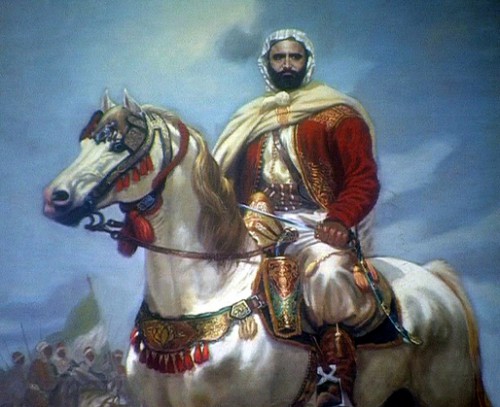
Abdel Khader
Après la guerre “inter-ottomane” entre le Sultan et Mehmet Ali, en 1847, Abdel Khader capitule et se rend aux Français en Algérie, pays auquel il avait voulu rendre l’indépendance. Le Duc d’Aumale, vainqueur, lui accorde sa garantie et sa protection. Il croupit d’abord dans une prison française de 1848 à 1852 puis s’exile à Damas en Syrie en 1853. Il est autorisé à y séjourner avec sa suite, une troupe d’un millier de soldats maghrébins aguerris, avec leur famille. Cette émigration hors de l’Algérie devenue française permet au Second Empire de se débarrasser des éléments les plus turbulents de la première révolte algérienne et, comme nous le verrons, d’exploiter leur dynamisme et leur fougue guerrière. Les Ottomans ne contestent pas cette présence: ils ont besoin de leurs nouveaux alliés français contre la Russie qui a attaqué les ports turcs de la Mer Noire, déclenchant ainsi la Guerre de Crimée. En 1860, après cette guerre qui a ruiné les principes pan-européens (et eurasistes avant la lettre) de la Sainte-Alliance, des troubles éclatent au Liban et dans le Djebel druze, où la population locale musulmane ou druze massacre les chrétiens, obligeant la France, protectrice de jure de ces minorités chrétiennes dans l’Empire ottoman, à intervenir. Abdel Khader, devenu instrument militaire de la France avec son armée algérienne installée en Syrie, intervient et sauve les chrétiens syriens du massacre. Ces troubles du Levant avaient éclaté parce que le Sultan avait envisagé d’accorder aux puissances européennes, surtout la France et l’Angleterre, toutes sortes de concessions, notamment celles qui consistait à lever le statut de dhimmitude pour les chrétiens d’Orient et à autoriser les puissances chrétiennes à ouvrir des écoles dans tous les vilayets entre Antioche et le Sinaï. La politique occidentale, franco-anglaise, n’est plus, alors, de créer un Etat-tampon juif mais de créer une nation arabe moderne, favorable à l’Occident, en rébellion contre la Sublime Porte, formant un verrou grand-syrien cohérent entre l’Egypte et l’Anatolie. Dans ce projet, la France et l’Angleterre visent surtout à asseoir leur domination sur le Liban actuel, où on fabriquera, grâce aux nouvelles écoles catholiques ou protestantes, une élite intellectuelle occidentalisée, au départ de groupes de Maronites nationalistes arabes, hostiles à la Sublime Porte, qui ne les avait pas protégés en 1860 dans le Djebel druze.
En 1876, Abdülhamid monte sur le trône ottoman. En 1877-78, ses armées sont écrasées par les Russes qui volent au secours des Bulgares et des Roumains qui venaient de proclamer leur indépendance. Les territoires balkaniques de l’Empire ottoman se réduisent comme une peau de chagrin, entraînant une crise générale dans tout l’Empire. Il est fragilisé à l’extrême: les Bulgares ont campé devant les murs de Constantinople et sont désormais en mesure de réitérer cette aventure militaire avec l’appui russe. La Turquie ottomane se tourne de plus en plus vers l’Allemagne, tandis que les Français rêvent d’un royaume arabe du Levant, dont le souverain serait... Abdel Khader. On ne songe plus à envoyer dans la région les juifs d’Europe.
Rabbi Alkalai, Zvi Hirsch Kalisher, Joseph Natonek
L’idée sioniste est alors quasiment absente dans les ghettos juifs d’Europe, a fortiori au sein des judaïsmes émancipés dont les représentants n’ont nulle envie d’aller cultiver la terre ingrate du Levant. On peut cependant citer des prédécesseurs religieux, dont le rabbin de Sarajevo Alkalai (1798-1878), sujet ottoman, qui énonce, non pas l ‘idée d’aller s’installer en Palestine, mais une idée neuve et révolutionnaire au sein du judaïsme européen: le judaïsme ne doit plus être la religion qui attend en toute quiétude que revienne le Messie. Pour Alkalai, il ne faut plus attendre, il faut se libérer activement et le Messie viendra. Pour développer une action, il faut un projet, qu’Alkalai n’énonce pas encore mais son refus de l’attitude d’attente de la religion mosaïque traditionnelle implique ipso facto de sortir de sa quiétude impolitique, de se porter vers un activisme qui attend son heure et ses mots d’ordre. Par ailleurs, à Thorn en Posnanie prussienne, Zvi Hirsch Kalisher (1795-1874) propose, pragmatique à rebours de son collègue de Sarajevo, la création d’une société de colonisation en 1861-62. C’est le premier projet “sioniste” juif non purement tactique, émanant d’une géopolitique française, russe ou autrichienne. On notera que ces projets constituent une réaction contre l’émancipation (qui, disent ces pré-sionistes, va aliéner les juifs par rapport à leur héritage ancestral) et non contre les persécutions. Leur attitude est dès lors assez ambigüe: il faut rester juif mais non pas à la mode traditionnelle et “quiète”; il faut le rester en pratiquant un nouvel activisme qui, dans ses principes, serait juif, non transmissible aux non-juifs, mais simultanément non traditionnel, ce qui conduit les traditionalistes quiets à rétorquer qu’un activisme ne peut être juif, mais seulement copie maladroite des manies des “goyim” et que seul l’attente est signe de judaïsme véritable.
Un peu plus tard, Joseph Natonek (1813-1892) élabore un plan plus précis, celui que reprendra Herzl et son fameux “Congrès sioniste” de 1897. Natonek suggère la création d’un “Congrès juif mondial”, de demander ensuite une charte aux Turcs, d’amorcer une colonisation agricole puis de favoriser une émigration de masse vers la Palestine et de créer une langue hébraïque moderne. Natonek ne donne pas de nom à son projet: on ne peut pas parler de sionisme, puisque le terme n’existe pas encore. Personne ne suit Natonek: l’alliance israélite universelle refuse ses plans en 1866 et se borne à aider, via des initiatives philanthropiques, les juifs ottomans de Palestine, ceux du “vieux peuplement” ou “vieux yishuv”. Natonek, dépité, se retire de tous les débats que ses idées avaient lancés. Deux membres de sa famille partent en Palestine pour fonder une colonie agricole, la toute première de l’histoire du sionisme.

Moïse Hess
Le socialiste allemand de confession juive Moïse (Moshe) Hess, issu de l’écurie des Jeunes Hégéliens comme Karl Marx (avec qui il se disputera), observe, après 1848, l’agitation politique que suscitent les mouvements nationaux partout en Europe, surtout en Italie, en Pologne et dans les Balkans. Il voyait la faiblesse du judaïsme dans son particularisme, face à un christianisme qui se voulait universel (positions assez différentes de celles, bricolées, d’un Bernard-Henri Lévy qui, lui, voit des peuples goyim indécrottablement “particularistes” ou “vernaculaires” et un judaïsme essentiellement universaliste). Errant dans un espace idéologique sans limites perceptibles, dans un flou conceptuel, le socialisme de Hess l’induit d’abord à lutter pour l’émancipation du prolétariat, indépendamment de toute appartenance religieuse. Plus tard, il revient au judaïsme, noyau religieux de la “nationalité juive”, et réclame le droit des juifs à avoir un Etat à eux puisque personne ne veut les assimiler, les accepter. Il en déduit que les juifs sont inassimilables et que cette “inassimilabilité” —qu’il juge finalement positive— caractérise leur nationalité, en même temps que leur particularisme. Par conséquent, il pense que la France, qui a défendu les Maronites de Syrie contre les Druzes avec l’aide des guerriers d’Abdel Khader, pourrait aider les juifs d’Europe à se créer un foyer au Levant qui, en même temps, serait un modèle de société socialiste et égalitaire. Il n’est pas pris au sérieux par la majorité de ses co-religionnaires d’Europe occidentale et centrale qui le prennent pour un utopiste (exactement comme Marx!).
Leo Pinsker
Avant le manifeste de Theodor Herzl, qui lancera le sionisme proprement dit, une idée motrice émerge dans le monde intellectuel juif, chez un certain Leo Pinsker: celui-ci préconise un “retour à la normalité”. Il argumente: c’est parce que les juifs ne sont pas “normaux” qu’il y a de l’antisémitisme. Si les juifs revenaient à une “normalité” qu’ils partageraient avec les autres citoyens des Etats dans lesquels ils vivent, l’antisémitisme n’aurait plus raison d’être. Or l’antisémitisme devenait virulent en Europe orientale: les pogroms se succèdaient en Russie et la Roumanie, devenue indépendante, ne reconnaissait pas les juifs comme citoyens; de même, les émeutes et les pillages antijuifs, commis par les Européens de souche et les autochtones arabo-berbères en Algérie française se multiplient dans les années 90 du 19ème siècle. L’idée sioniste, avant la lettre, trouvera par conséquent un large écho en Roumanie. Parmi les tout premiers immigrants juifs du “nouveau yishuv”, on comptait beaucoup de ressortissants des ghettos de Roumanie, mal accueillis par leurs coreligionnaires du “vieux yishuv”. Quant aux juifs de Russie, la route de l’immigration leur est barrée en 1893 par ordre du Sultan, qui craint que les Russes appliquent l’idée purement tactique du Prince de Ligne et de Napoléon, en créant, par l’envoi massif de juifs de Russie, un judaïsme fidèle à l’ennemi slave sur le flanc sud de l’Anatolie turque. Par la volonté du Sultan, les juifs russes ne peuvent donc plus acheter de terres en Palestine. En 1890, Nathan Birnbaum forge le mot de “sionisme” dans la revue Kadima, en faisant référence à la colline de Sion à Jérusalem. Mais Birnbaum abandonne bien vite l’idée sioniste: il plaidera pour l’éclosion de “judaïsmes nationaux”, notamment en Allemagne, dont la langue serait le yiddisch et non pas un “nouvel hébreu” comme l’avait demandé Natonek. Il tranche ainsi à sa manière le dilemme activisme/quiétude: il replonge dans les traditions juives/yiddish tout en refusant l’activisme sioniste/moderniste (et “simili-goy”). Mais Herzl est un disciple de Birnbaum, qui ne retient que l’idée de revenir à la colline de Sion, d’y créer un Etat où les juifs pourraient vivre la vie de citoyens modernes normaux, selon les critères préconisés par Pinsker (et aussi, avant lui, par Hess).
Théodore Herzl
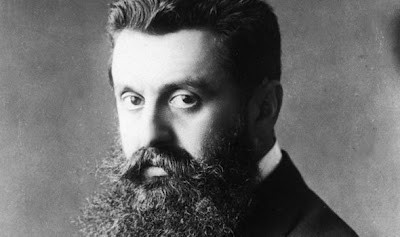 Jusqu’à la parution du petit livre de Théodore Herzl en février 1896, intitulé L’Etat juif, le sionisme est une idéologie vague et confuse, affirmée puis critiquée, acceptée puis reniée. Le livre de Herzl n’était pas moins confus car il ne disait rien de précis sur le site géographique de ce futur et très hypothétique “Etat juif”. Il pourrait se situer en Palestine mais aussi ailleurs dans le monde. Son manifeste, bien que confus, attire quelques personnalités influentes (Nordau, Kahn, Lazare, Goldschmidt, Montagu, etc.) et recueille les signatures de milliers d’étudiants juifs d’Europe centrale. Mais les assimilationistes et les quelques colons de Palestine (issus du mouvement ‘Hovevei Zion) ne le soutiennent pas, parce qu’ils craignent d’éveiller un nouvel antisémitisme ou de voir les frontières des vilayets ottomans du Levant se fermer à tous nouveaux arrivants par crainte d’une submersion. Herzl développe alors une véritable “diplomatie sioniste” tous azimuts pour tenter, vaille que vaille, d’arriver à ses fins, avec l’appui, non pas d’une bourgeoisie juive assimilationiste, mais de dizaines de milliers de petites gens qui n’ont guère d’espoir d’avancer socialement, surtout en Pologne, en Russie et en Roumanie. Cette agitation autour de Herzl va, suite au “Congrès de Bâle” d’août 1897, donner naissance au sionisme moderne, autonome, capable, théoriquement, de faire avancer ses idées sans le soutien d’une puissance impériale. Guillaume II d’Allemagne, qui n’est certainement pas antisémite, décourage cette volonté romantique de faire l’alya (le retour à la Terre de Sion) pour ne pas heurter son nouvel allié turc. Les Russes, qui auraient pu pratiquer à leur profit la politique jadis préconisée par le Prince de Ligne ou Napoléon, répugnent à le faire. Le rêve sioniste de Herzl ne pourra cependant pas se concrétiser sans la “Déclaration Balfour” de 1917 qui donnera le coup d’envoi à la colonisation massive des terres de Palestine par des colons juifs venus d’Europe après la première guerre mondiale, surtout de Russie (ceux qui refusaient la bolchevisation de l’Empire des Tsars comme Jabotinsky) et d’Europe centrale, après les réactions hongroises et roumaines contre le régime “judéo-bolchevique” de Belà Kun à Budapest.
Jusqu’à la parution du petit livre de Théodore Herzl en février 1896, intitulé L’Etat juif, le sionisme est une idéologie vague et confuse, affirmée puis critiquée, acceptée puis reniée. Le livre de Herzl n’était pas moins confus car il ne disait rien de précis sur le site géographique de ce futur et très hypothétique “Etat juif”. Il pourrait se situer en Palestine mais aussi ailleurs dans le monde. Son manifeste, bien que confus, attire quelques personnalités influentes (Nordau, Kahn, Lazare, Goldschmidt, Montagu, etc.) et recueille les signatures de milliers d’étudiants juifs d’Europe centrale. Mais les assimilationistes et les quelques colons de Palestine (issus du mouvement ‘Hovevei Zion) ne le soutiennent pas, parce qu’ils craignent d’éveiller un nouvel antisémitisme ou de voir les frontières des vilayets ottomans du Levant se fermer à tous nouveaux arrivants par crainte d’une submersion. Herzl développe alors une véritable “diplomatie sioniste” tous azimuts pour tenter, vaille que vaille, d’arriver à ses fins, avec l’appui, non pas d’une bourgeoisie juive assimilationiste, mais de dizaines de milliers de petites gens qui n’ont guère d’espoir d’avancer socialement, surtout en Pologne, en Russie et en Roumanie. Cette agitation autour de Herzl va, suite au “Congrès de Bâle” d’août 1897, donner naissance au sionisme moderne, autonome, capable, théoriquement, de faire avancer ses idées sans le soutien d’une puissance impériale. Guillaume II d’Allemagne, qui n’est certainement pas antisémite, décourage cette volonté romantique de faire l’alya (le retour à la Terre de Sion) pour ne pas heurter son nouvel allié turc. Les Russes, qui auraient pu pratiquer à leur profit la politique jadis préconisée par le Prince de Ligne ou Napoléon, répugnent à le faire. Le rêve sioniste de Herzl ne pourra cependant pas se concrétiser sans la “Déclaration Balfour” de 1917 qui donnera le coup d’envoi à la colonisation massive des terres de Palestine par des colons juifs venus d’Europe après la première guerre mondiale, surtout de Russie (ceux qui refusaient la bolchevisation de l’Empire des Tsars comme Jabotinsky) et d’Europe centrale, après les réactions hongroises et roumaines contre le régime “judéo-bolchevique” de Belà Kun à Budapest.
Conclusion
Les origines de cette idée sioniste, assortie d’une volonté de créer un nouvel Etat au Levant, sur territoire ottoman, ne sont cependant pas juives au départ. Elles résultent de calculs froids et cyniques de militaires européens soucieux de briser la cohérence territoriale de l’Empire ottoman en enfonçant, tel un coin, une entité nouvelle, à leur dévotion, entre l’Egypte et l’Anatolie: cette entité envisagée a été tour à tour juive, avec de Ligne et Napoléon, puis arabe, avec Abdel Khader ou les Maronites occidentalisés. Pendant la première guerre mondiale, les Britanniques avaient d’ailleurs parié sur les deux: sur les Hachémites avec Lawrence d’Arabie, sur les juifs avec la “Jewish Legion” et la “Déclaration Balfour”. Par conséquent, il ne serait pas faux d’affirmer que tout sionisme pratique découle d’un calcul stratégique non juif, parfaitement impérial, destiné à contrôler le Levant et à affaiblir et l’Egypte (grande puissance potentielle au temps de Mehmet Ali) et la Turquie ottomane: le “sionisme” des non juifs n’est pas au départ une volonté de faire du “favoritisme” au bénéfice des juifs; ce n’était ni le cas hier, où l’on était parfois naturellement cynique, ni le cas aujourd’hui, où l’on camoufle ses hypocrisies derrière une façade d’humanisme; le mobile principal est d’avoir une population, quelle qu’elle soit —au départ exogène (les Algériens d’Abdel Khader ou les juifs sionistes) ou minoritaire, en conflit avec son environnement géographique et historique— mais qui puisse toujours servir à créer un Etat-bastion pour disloquer les territoires de l’ancien Empire ottoman, pour empêcher la soudure Egypte/Anatolie, pour tenir l’ensemble de la Méditerranée jusqu’à son “bout” sur les côtes du Levant, pour garder les approches du canal de Suez, pour avoir une fenêtre sur la Mer Rouge (le port d’Elat à côté d’Akaba en Jordanie). L’attitude de la Grande-Bretagne de Lloyd George, désireuse d’affaiblir les Turcs et de créer une zone-tampon en lisière du Sinaï et du Canal de Suez, pour protéger le protectorat britannique sur l’Egypte, ne relève pas d’un autre calcul.
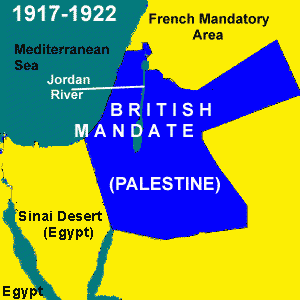
Les Anglais, toutefois, voulaient un “foyer” juif et non un Etat juif car ils devaient ménager leurs protégés arabes grâce auxquels ils avaient pu chasser les Turcs du Levant. L’idée de “foyer” permet d’avoir un territoire disloqué, présentant une mosaïque de diversités, sans cohésion aucune et donc plus facilement contrôlable. Les sionistes d’extrême-droite, dont l’idéologue principal fut au départ Vladimir Jabotinsky, voudront un Etat en bonne et due forme et ne se contenteront pas d’un simple “foyer”, immergé dans une population arabe majoritaire, dont ils ne partageaient ni les moeurs ni les aspirations. Ces sionistes radicaux, qui, au fond, ne voulaient de cette mosaïque judéo-arabe envisagée par les stratèges londoniens, se révolteront contre la puissance mandataire britannique en s’inspirant des écrits de Michael Collins, le leader révolutionnaire irlandais, et de l’action de l’IRA. Jabotinsky ne suivra pas ses disciples les plus virulents sur cette voie maximaliste et terroriste: il était un officier britannique de la “Jewish Legion”, d’origine russe, fidèle à l’Entente franco-anglo-russe et hostile aux Bolcheviques de Lénine. Il restera donc loyal à l’égard de l’Angleterre. Aujourd’hui, l’Etat d’Israël, né en 1948, ne survit que pour une seule raison: il est la zone-tampon au Levant dont se sert une nouvelle puissance impérialiste, américaine cette fois, pour asseoir sa domination dans le bassin oriental de la Méditerranée, pour tenir l’Egypte, la Syrie et, éventuellement, la Turquie en échec.

La preuve la plus tangible de cette inféodation d’Israël à l’hegemon américain est, bien entendu, la présence permanente de la flotte US de la Méditerranée, qui y a évincé toutes les flottes européennes riveraines, faisant automatiquement de l’Etat d’Israël la “tête de pont” de cette redoutable flotte au fond de cette mer qui s’enfonce très profondément dans les terres “eurafricaines” et qui, par cette configuration géographique, a acquis pour l’éternité une importance stratégique cardinale. Les Israéliens lucides, dubitatifs face aux outrances de leurs gouvernants ou de leurs extrémistes, savent que ce statut d’Etat-tampon est fragile sur le long terme: d’une part, ils craignent aujourd’hui que les Etats-Unis ne reviennent à leur ancienne alliance avec l’Iran, situation qui les déforcerait considérablement, déplorent le chaos créé en Syrie, savent que les Etats-Unis ne peuvent indéfiniment froiser le monde arabo-musulman, où ils perdraient alors tous leurs avantages stratégiques. D’autre part, ces Israéliens lucides commencent à réfléchir sur la fragilité des mythes sionistes (pures fabrications?) avec l’école dite “post-sioniste” qui développe une critique argumentée de l’idéologie et des pratiques du sionisme réellement existant et s’interroge sur la substantialité réelle de toute la mythologie politique de l’Etat d’Israël, né au lendemain de la seconde guerre mondiale par l’afflux des “personnes déplacées”, suite aux expulsions et déportations qui ont tragiquement marqué les années 1945-1950, où l’Europe n’était qu’un champ de ruines où régnait la misère et la famine. Pour pallier ces doutes et ces inquiétudes, bien présentes dans la société israélienne, les forces sionistes qui structurent l’Etat hébreu comptent essentiellement sur deux facteurs: sur l’électorat juif des Etats-Unis et, surtout, pour faire poids et masse, sur les millions de “Christian Zionists” fanatisés par les téléprédicateurs d’Outre-Atlantique. Tant que les juifs d’Amérique et les “Christian Zionists” seront capables d’imposer et de ré-imposer, par leurs voix, une politique pro-israélienne aux Etats-Unis, le rêve sioniste des innombrables juifs jadis manipulés par les grandes puissances restera réalisable mais dans la douleur et dans une tension permanente, harassante, décourageante.
Robert Steuckers.
(Forest-Flotzenberg, Fessevillers, Genève & Nerniers, avril 2010; rédaction finale: mars 2013).
Bibliographie:
Delphine BENICHOU (éd.), Le sionisme dans les textes, CNRS Editions, Paris, 2008.
Alain BOYER, Les origines du sionisme, PUF, Paris, 1988.
Gudrun KRÄMER, Geschichte Palästinas – Von der osmanischen Eroberung bis zur Gründung des Staates Israel, Verlag C. H. Beck, München, 2002-2006 (5. Auflage).
Shlomo SAND, Les mots et la terre – Les intellectuels en Israël, Flammarion, coll. “Champs”, n°950, Paris, 2010.
Colin SHINDLER, Israel, Likud and the Zionist Dream – Power, Politics and Ideology from Begin to Netanyahu, I. B. Tauris, London, 1995.
Zeev STERNHELL, Aux origines d’Israël, Gallimard, coll. “Folio”, n°132, Paris, 1996-2005.






 del.icio.us
del.icio.us
 Digg
Digg
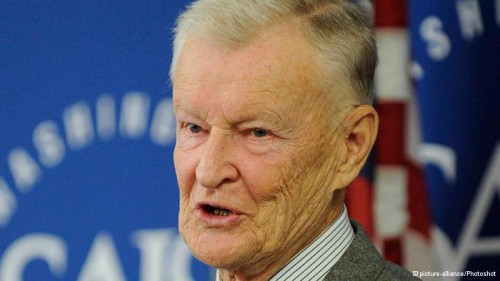


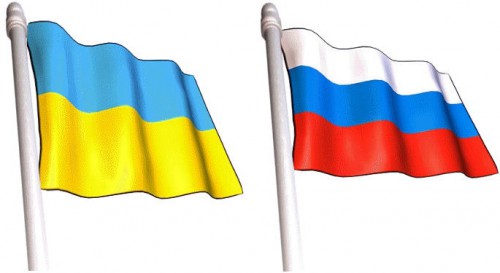
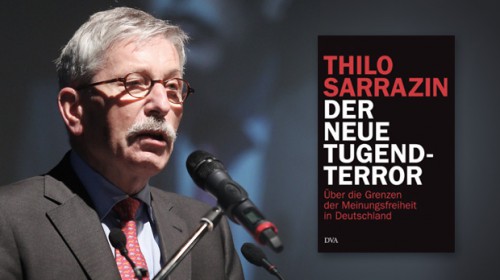

 Voilà, nous y sommes ! En cette année où est célébré le centenaire de la catastrophe de 1914, début d’une nouvelle guerre de trente ans qui s’est achevée avec la fin du règne du concert des nations, voici que résonnent à nouveau les tambours de bronze. Et quels tambours ! Encore une fois, un conflit fratricide menace entre des peuples européens. Ce conflit résulte pour une grande part d’une guerre idéologique entre une vision politique traditionnelle défendue par la Fédération de Russie, et des valeurs idéalistes, partagées et pratiquées par la seule Union européenne (les Etats-Unis d’Amérique les partagent, mais les pratiquent moins).
Voilà, nous y sommes ! En cette année où est célébré le centenaire de la catastrophe de 1914, début d’une nouvelle guerre de trente ans qui s’est achevée avec la fin du règne du concert des nations, voici que résonnent à nouveau les tambours de bronze. Et quels tambours ! Encore une fois, un conflit fratricide menace entre des peuples européens. Ce conflit résulte pour une grande part d’une guerre idéologique entre une vision politique traditionnelle défendue par la Fédération de Russie, et des valeurs idéalistes, partagées et pratiquées par la seule Union européenne (les Etats-Unis d’Amérique les partagent, mais les pratiquent moins).


























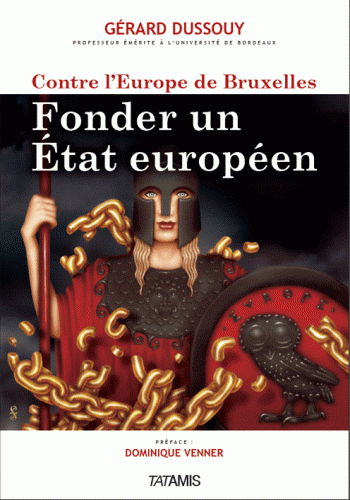

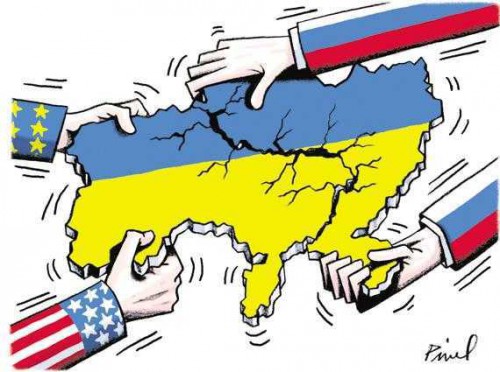
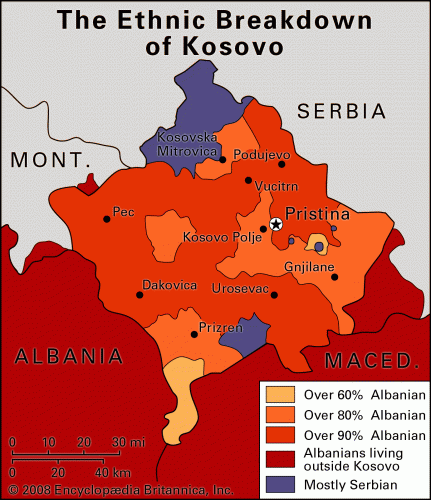
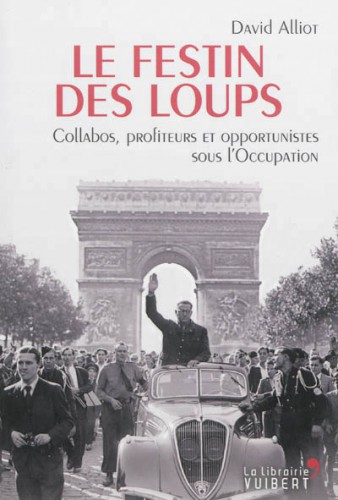
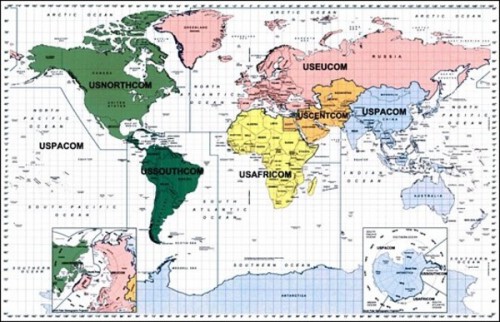
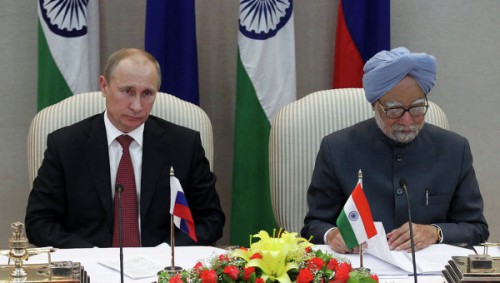
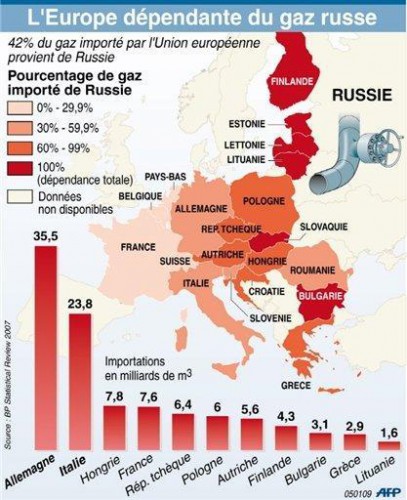
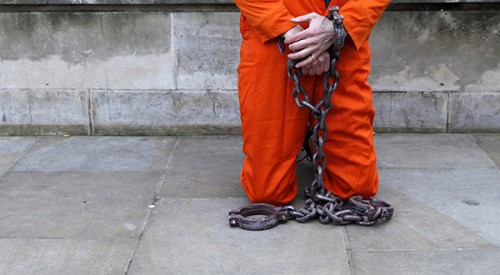
 Bien entendu, aucun des médias français de grande diffusion n’a jugé utile d’en informer les Français, alors qu’ils sont si prompts, dans le sens inverse, à faire constamment état de la situation des droits de l’Homme en Chine.C’est à mon avis une raison supplémentaire pour porter attention à ce document.
Bien entendu, aucun des médias français de grande diffusion n’a jugé utile d’en informer les Français, alors qu’ils sont si prompts, dans le sens inverse, à faire constamment état de la situation des droits de l’Homme en Chine.C’est à mon avis une raison supplémentaire pour porter attention à ce document. Attention, géographe non conforme.
Attention, géographe non conforme.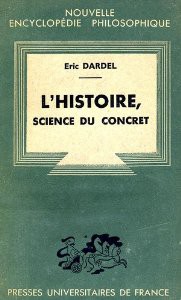 Pour cette géographie mythique, il emprunte beaucoup à Mircéa Eliade et notamment son ouvrage Traité d’histoire des religions. Concrètement, donc, la terre, la mer, l’air, le feu, pour reprendre des thèmes chers à Gaston Bachelard, sont au cœur du processus d’échange et de coexistence entre la terre en sens large et les hommes. D’ailleurs notons que les « hommes » pris en exemple sont souvent des peuplades aux rapports très privilégiés avec leur environnement, qui est souvent peu maniable (nordicité, aridité, forêt sempervirente).
Pour cette géographie mythique, il emprunte beaucoup à Mircéa Eliade et notamment son ouvrage Traité d’histoire des religions. Concrètement, donc, la terre, la mer, l’air, le feu, pour reprendre des thèmes chers à Gaston Bachelard, sont au cœur du processus d’échange et de coexistence entre la terre en sens large et les hommes. D’ailleurs notons que les « hommes » pris en exemple sont souvent des peuplades aux rapports très privilégiés avec leur environnement, qui est souvent peu maniable (nordicité, aridité, forêt sempervirente).



 Notre position ne peut être ni propagandiste ni militante car nous ne sommes ni juifs ni arabes, car nous ne pouvons raisonnablement nous identifier aux uns ou aux autres, tout en étant désireux de ne pas voir l’ensemble du Levant et du Moyen Orient plongé dans une guerre sans fin, qui, dans tous les cas de figure, serait contraire à nos intérêts. Le sionisme, c’est-à-dire la volonté de transplanter tous les juifs d’Europe dans l’ancienne Palestine romaine ou ottomane, n’a pourtant pas, au départ, des origines juives. Le tout premier à avoir émis l’hypothèse d’une telle transplantation est mon compatriote, le Feldmarschall impérial Charles-Joseph de Ligne, envoyé comme attaché militaire autrichien auprès de Catherine II la Grande en guerre contre l’Empire ottoman, auquel elle arrachera la Crimée, sanctionnant ainsi la prépondérance russe en Mer Noire. A cette époque qui a immédiatement précédé les délires criminels de la révolution française, Russes et Autrichiens envisageaient de porter un coup final à cet empire moribond qui avait assiégé l’Europe du Sud-Est pendant plusieurs siècles. Pour y parvenir, le Prince de Ligne a suggéré d’envoyer toute la population des ghettos d’Europe centrale et orientale dans la partie médiane de l’Empire ottoman, de façon à ce qu’un foyer de dissidence se crée, au bénéfice des Russes et des Autrichiens, entre l’Egypte, province de la Sublime Porte, et l’Anatolie proprement turque. L’objectif de ce “sionisme” ante litteram, non idéologique et non religieux mais essentiellement tactique, était donc de séparer l’Egypte de la masse territoriale anatolienne, sur un territoire, qui, dans l’histoire antique, avait déjà été âprement disputé entre les Pharaons et les souverains hittites (bataille de Qadesh) voire, aux temps des Croisades européennes, entre Fatimides d’Egypte, alliés occasionnels des rois croisés, et Seldjouks.
Notre position ne peut être ni propagandiste ni militante car nous ne sommes ni juifs ni arabes, car nous ne pouvons raisonnablement nous identifier aux uns ou aux autres, tout en étant désireux de ne pas voir l’ensemble du Levant et du Moyen Orient plongé dans une guerre sans fin, qui, dans tous les cas de figure, serait contraire à nos intérêts. Le sionisme, c’est-à-dire la volonté de transplanter tous les juifs d’Europe dans l’ancienne Palestine romaine ou ottomane, n’a pourtant pas, au départ, des origines juives. Le tout premier à avoir émis l’hypothèse d’une telle transplantation est mon compatriote, le Feldmarschall impérial Charles-Joseph de Ligne, envoyé comme attaché militaire autrichien auprès de Catherine II la Grande en guerre contre l’Empire ottoman, auquel elle arrachera la Crimée, sanctionnant ainsi la prépondérance russe en Mer Noire. A cette époque qui a immédiatement précédé les délires criminels de la révolution française, Russes et Autrichiens envisageaient de porter un coup final à cet empire moribond qui avait assiégé l’Europe du Sud-Est pendant plusieurs siècles. Pour y parvenir, le Prince de Ligne a suggéré d’envoyer toute la population des ghettos d’Europe centrale et orientale dans la partie médiane de l’Empire ottoman, de façon à ce qu’un foyer de dissidence se crée, au bénéfice des Russes et des Autrichiens, entre l’Egypte, province de la Sublime Porte, et l’Anatolie proprement turque. L’objectif de ce “sionisme” ante litteram, non idéologique et non religieux mais essentiellement tactique, était donc de séparer l’Egypte de la masse territoriale anatolienne, sur un territoire, qui, dans l’histoire antique, avait déjà été âprement disputé entre les Pharaons et les souverains hittites (bataille de Qadesh) voire, aux temps des Croisades européennes, entre Fatimides d’Egypte, alliés occasionnels des rois croisés, et Seldjouks. 

 Jusqu’à la parution du petit livre de Théodore Herzl en février 1896, intitulé L’Etat juif, le sionisme est une idéologie vague et confuse, affirmée puis critiquée, acceptée puis reniée. Le livre de Herzl n’était pas moins confus car il ne disait rien de précis sur le site géographique de ce futur et très hypothétique “Etat juif”. Il pourrait se situer en Palestine mais aussi ailleurs dans le monde. Son manifeste, bien que confus, attire quelques personnalités influentes (Nordau, Kahn, Lazare, Goldschmidt, Montagu, etc.) et recueille les signatures de milliers d’étudiants juifs d’Europe centrale. Mais les assimilationistes et les quelques colons de Palestine (issus du mouvement ‘Hovevei Zion) ne le soutiennent pas, parce qu’ils craignent d’éveiller un nouvel antisémitisme ou de voir les frontières des vilayets ottomans du Levant se fermer à tous nouveaux arrivants par crainte d’une submersion. Herzl développe alors une véritable “diplomatie sioniste” tous azimuts pour tenter, vaille que vaille, d’arriver à ses fins, avec l’appui, non pas d’une bourgeoisie juive assimilationiste, mais de dizaines de milliers de petites gens qui n’ont guère d’espoir d’avancer socialement, surtout en Pologne, en Russie et en Roumanie. Cette agitation autour de Herzl va, suite au “Congrès de Bâle” d’août 1897, donner naissance au sionisme moderne, autonome, capable, théoriquement, de faire avancer ses idées sans le soutien d’une puissance impériale. Guillaume II d’Allemagne, qui n’est certainement pas antisémite, décourage cette volonté romantique de faire l’alya (le retour à la Terre de Sion) pour ne pas heurter son nouvel allié turc. Les Russes, qui auraient pu pratiquer à leur profit la politique jadis préconisée par le Prince de Ligne ou Napoléon, répugnent à le faire. Le rêve sioniste de Herzl ne pourra cependant pas se concrétiser sans la “Déclaration Balfour” de 1917 qui donnera le coup d’envoi à la colonisation massive des terres de Palestine par des colons juifs venus d’Europe après la première guerre mondiale, surtout de Russie (ceux qui refusaient la bolchevisation de l’Empire des Tsars comme Jabotinsky) et d’Europe centrale, après les réactions hongroises et roumaines contre le régime “judéo-bolchevique” de Belà Kun à Budapest.
Jusqu’à la parution du petit livre de Théodore Herzl en février 1896, intitulé L’Etat juif, le sionisme est une idéologie vague et confuse, affirmée puis critiquée, acceptée puis reniée. Le livre de Herzl n’était pas moins confus car il ne disait rien de précis sur le site géographique de ce futur et très hypothétique “Etat juif”. Il pourrait se situer en Palestine mais aussi ailleurs dans le monde. Son manifeste, bien que confus, attire quelques personnalités influentes (Nordau, Kahn, Lazare, Goldschmidt, Montagu, etc.) et recueille les signatures de milliers d’étudiants juifs d’Europe centrale. Mais les assimilationistes et les quelques colons de Palestine (issus du mouvement ‘Hovevei Zion) ne le soutiennent pas, parce qu’ils craignent d’éveiller un nouvel antisémitisme ou de voir les frontières des vilayets ottomans du Levant se fermer à tous nouveaux arrivants par crainte d’une submersion. Herzl développe alors une véritable “diplomatie sioniste” tous azimuts pour tenter, vaille que vaille, d’arriver à ses fins, avec l’appui, non pas d’une bourgeoisie juive assimilationiste, mais de dizaines de milliers de petites gens qui n’ont guère d’espoir d’avancer socialement, surtout en Pologne, en Russie et en Roumanie. Cette agitation autour de Herzl va, suite au “Congrès de Bâle” d’août 1897, donner naissance au sionisme moderne, autonome, capable, théoriquement, de faire avancer ses idées sans le soutien d’une puissance impériale. Guillaume II d’Allemagne, qui n’est certainement pas antisémite, décourage cette volonté romantique de faire l’alya (le retour à la Terre de Sion) pour ne pas heurter son nouvel allié turc. Les Russes, qui auraient pu pratiquer à leur profit la politique jadis préconisée par le Prince de Ligne ou Napoléon, répugnent à le faire. Le rêve sioniste de Herzl ne pourra cependant pas se concrétiser sans la “Déclaration Balfour” de 1917 qui donnera le coup d’envoi à la colonisation massive des terres de Palestine par des colons juifs venus d’Europe après la première guerre mondiale, surtout de Russie (ceux qui refusaient la bolchevisation de l’Empire des Tsars comme Jabotinsky) et d’Europe centrale, après les réactions hongroises et roumaines contre le régime “judéo-bolchevique” de Belà Kun à Budapest. 

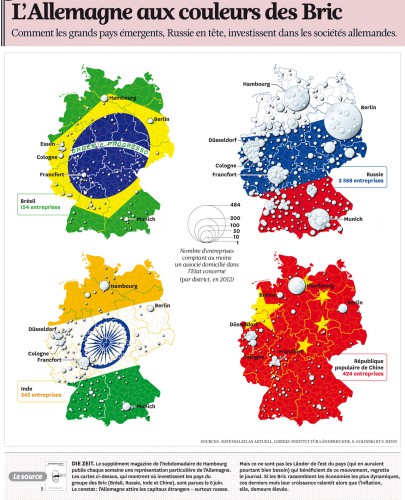
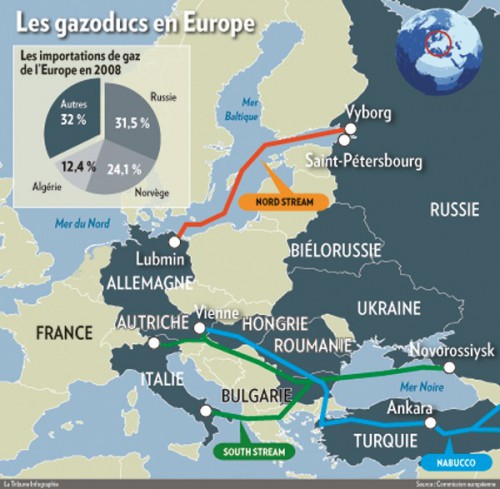
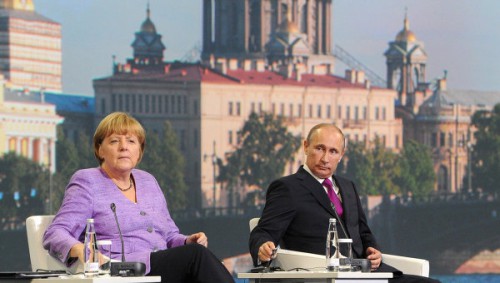
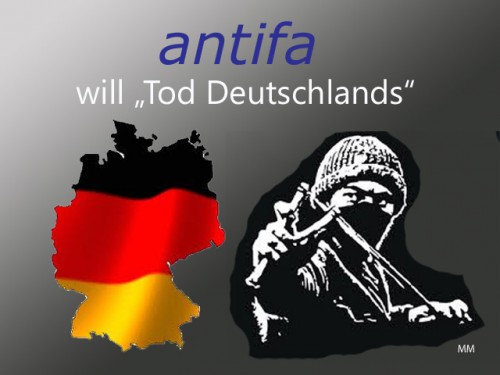
 CMW: Cette situation n’est aberrante que si vous partez encore et toujours du schéma qu’il existerait un “Centre” politique légitime et deux marges extrêmes qui devraient toutes deux être combattues. Il faudrait plutôt se demander pour quelles politiques et quelles valeur ce “Centre” s’engage. Où nous mène la politique des soi-disant “responsables” qui, depuis des décennies, se sont installés dans les fauteuils confortables du pouvoir? Si vous vous posez cette question, vous vous en poserez automatiquement une autre: les objectifs de ce “Centre”, de ces “forces centristes”, et de cette “mauvance hyper-activiste de gauche” ne sont-ils pas les mêmes, finalement? Le libéralisme et le communisme s’efforcent tous deux de créer sur la planète entière un seul et unique Etat global et unitaire qui, officiellement, nous apportera la paix et le bien-être mais, en réalité, nous contrôlera tous à l’extrême et exercera un pouvoir globalitaire au seul bénéfice d’une élite numériquement très ténue.
CMW: Cette situation n’est aberrante que si vous partez encore et toujours du schéma qu’il existerait un “Centre” politique légitime et deux marges extrêmes qui devraient toutes deux être combattues. Il faudrait plutôt se demander pour quelles politiques et quelles valeur ce “Centre” s’engage. Où nous mène la politique des soi-disant “responsables” qui, depuis des décennies, se sont installés dans les fauteuils confortables du pouvoir? Si vous vous posez cette question, vous vous en poserez automatiquement une autre: les objectifs de ce “Centre”, de ces “forces centristes”, et de cette “mauvance hyper-activiste de gauche” ne sont-ils pas les mêmes, finalement? Le libéralisme et le communisme s’efforcent tous deux de créer sur la planète entière un seul et unique Etat global et unitaire qui, officiellement, nous apportera la paix et le bien-être mais, en réalité, nous contrôlera tous à l’extrême et exercera un pouvoir globalitaire au seul bénéfice d’une élite numériquement très ténue. 